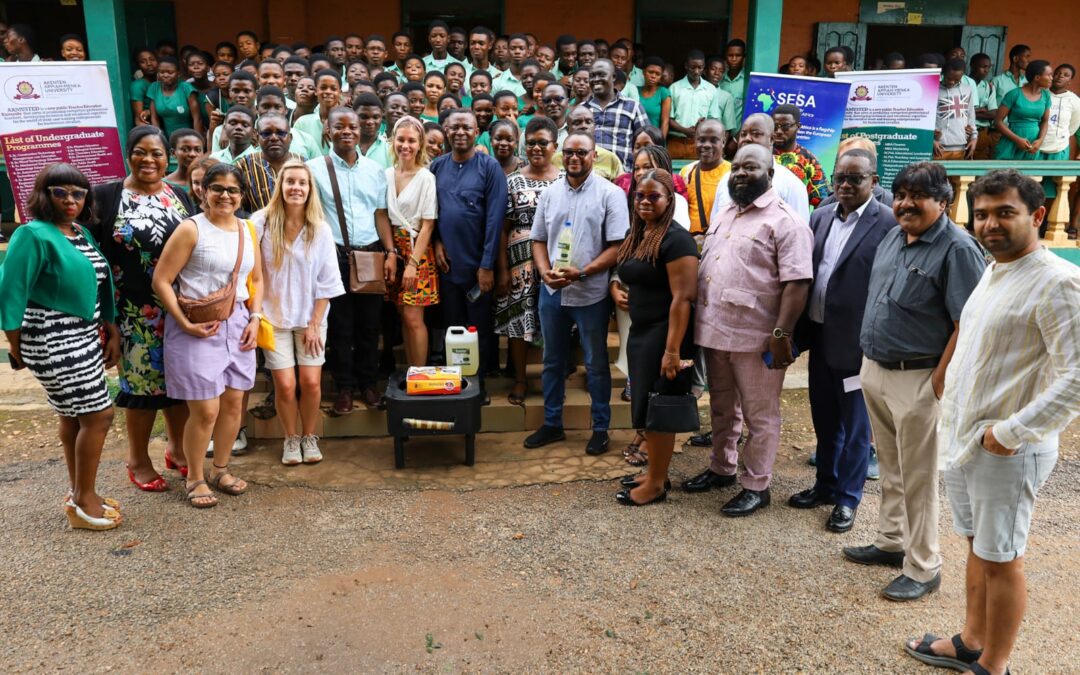
SESA unlocks potential of smart energy solutions at regional event in Ghana
The SESA – Smart Energy Solutions for Africa project, held its second Regional Event and Policy Dialogue in Accra, Ghana from the 9th to the 13th of October 2023. The event, hosted by SESA consortium member the Akenten Appiah-Menka University of Skills Training and Entrepreneurial Development (AAMUSTED), Econexus Ventures and Nastech Power Solutions offered insights into the successful implementation of SESA sustainable energy solutions in Accra and Kumasi (Ghana), specifically clean cooking solutions and off-grid solar technology, in addition to highlighting the importance of peer-to-peer exchange.
The event was supported by key partners within the SESA project, including ICLEI Africa, ICLEI Europe, Technical University Berlin (TUB), Smart Innovation Norway, F6S Innovation and the Urban Electric Mobility Initiative.
In the event’s agenda, municipal stakeholders from across Africa, Europe and India were brought together for a policy dialogue and peer-to-peer exchange, opened by his excellency Irchad Razaaly, Ambassador of the European Union to Ghana, to identify barriers, business models, and policy gaps in energy technology solutions.
The policy dialogue showcased the work pioneered by NASTECH (one of the winner SMEs from SESA’s First Call for Entrepreneurs, working on Second life battery solutions in Ghana) and Econexus Ventures (another SME winner from SESA’s First Call for Entrepreneurs, working on clean cooking). Both presentations were followed by a lively discussion on policy, social and technological barriers to the uptake of these technologies in Ghana.
The presence of Dr. Robert Sogbadgi, Deputy Director, Power (Nuclear and Alternative Energy) from the Ministry of Energy in Ghana for the discussion offered the opportunity the SMEs a chance to directly address the Ministry and for many was an important component, making the policy dialogue a particularly valuable discussion.
For Yogesh Mali, Executive Engineer for Pune Municipal Corporation (India), representing the UrbanShift project, it was useful to hear how the barriers to implementing second life battery technology are overcome, as they are like those faced in Pune. This opportunity for peer-to-peer exchange on renewable energy solutions follows a European exchange, which took place earlier this year in three cities: Cascais (Portugal), Barcelona (Spain), and Gothenburg (Sweden).
In addition to the Policy Dialogue and peer-to-peer exchange, the agenda included a series of workshops on climate financing, business modelling, capacity-building, and official launching of sites using innovative energy solutions. The financing workshop focused on project development and how to unlock climate financing at the local level. During the interactive component of the workshop, officials from Ga North and Ashaiman Municipal Assemblies, both in Ghana, began co-developing a waste-to-energy project.
The initial site visit in Accra was to Safisana, the first waste-to-energy facility in West Africa, featured an opportunity to see different sustainable business models with a focus on public-private partnerships. Following an introductory session and a comprehensive facility tour, participants engaged in reflective discussions on how to surmount the obstacles hindering the development of similar projects. A key takeaway was that partnerships and the role that local governments can and should play a proactive role in fostering connections to bolster waste management initiatives plays a significant role. This is of paramount importance given the escalating global waste crisis.
For Maria-Elena Seeman, Public Manager for International Affairs, Partnerships & Urban Innovation, Alba Iulia (Romania), found the exchange offered an opportunity to see different business models that emphasise a sustainable future. “The Safisana Ashaiman waste to energy plant [business model] was inspiring in how a functional public private partnership can impact the sustainable socio-economic development of the local communities, and a good example that could be replicated in European cities,” she reflected.
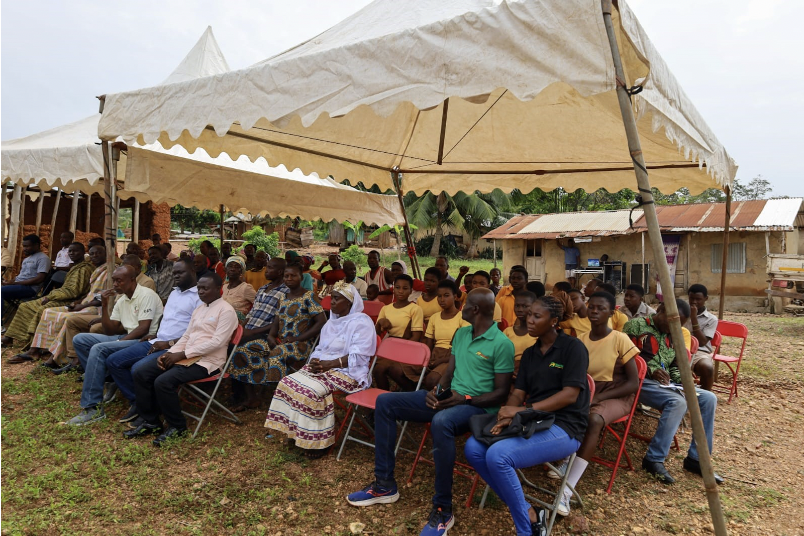
Micro-grid launch, in Bedabour – Photo by SESA partners
In Kumasi, the ensuing site visit marked the official launch of the Ghana Living Lab and showed concretely the efforts to implement smart energy solutions. Both site visits to the Nkawie and Toase Senior High schools launched the biofuel cooker, which demonstrated the clean cooking technology and the benefits of using such technology when compared to traditional cooking methods (especially firewood and charcoal).
The site visit to Bedabour launched the solar PV micro-grid system, and aimed not only launching the micro-grid, but in providing additional information to community members who were interested in learning about such systems and better understand the benefits that this micro-grid system can provide. These benefits include access to electricity to connect lights in their homes and the local school and running refrigeration systems at home. These benefits can impact the community’s day to day lives, as school children are now able to study, read and even play during the evenings under the lighting systems, and community members to be able to sell small items, such as cool drinks and fresh foods.
Following the launch, the regional event’s final day focused on capacity building and brought city officials and Living Lab representatives together to discuss why and how to build a strong impact measurement framework. The capacity building workshop gave voice to the SMEs and the challenges and opportunities they face with implementation. AAMUSTED supported by Nastech, highlighted routine operation and maintenance of solar PV systems as essential for the success and longevity of the system after installation. Econexus Ventures presented the adverse health effects which their clean biofuel addresses and but the need for related to social, economic, and policy barriers remain. Taking Ghana as a concrete case, the participants brainstormed different dimensions of the smart energy solutions implemented and the KPIs that have been identified to measure their positive effect.
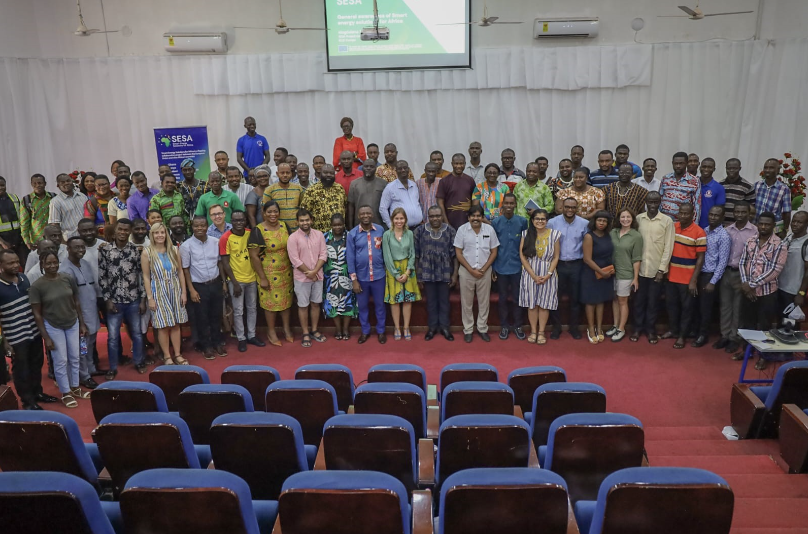
Capacity building workshop session at AAMUSTED – Photo by SESA partners
In the event’s conclusion, SESA Coordinator, Magdalena Sikorowska, ICLEI Europe reflected on the value of such exchanges, shared, “Implementing smart energy solutions directly impacts and improves the quality of life– not only of community members or school staff. It benefits future generations, especially kids that bring these ideas home. Moreover, young innovators require a favourable regulatory framework and financial support for further deployment of sustainable energy solutions on the ground. Regional events such as this bring together experts to exchange best practices, identify barriers to implementation and work towards a sustainable energy future.“

Launching of the biofuel cooker at Toase Secondary School – Photo by SESA partners



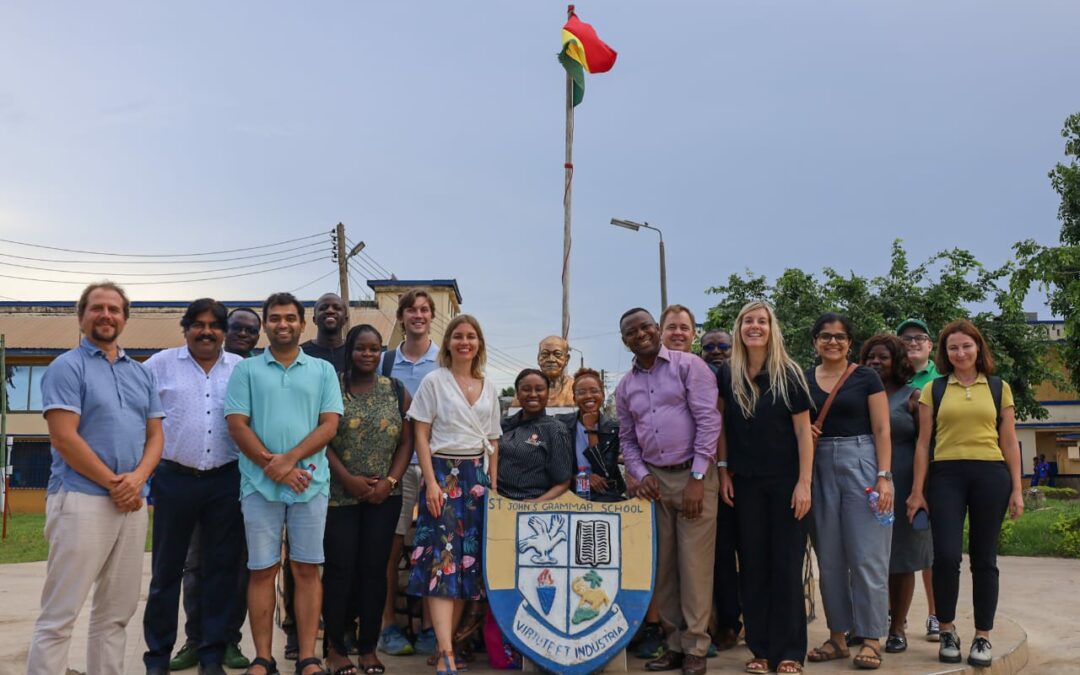
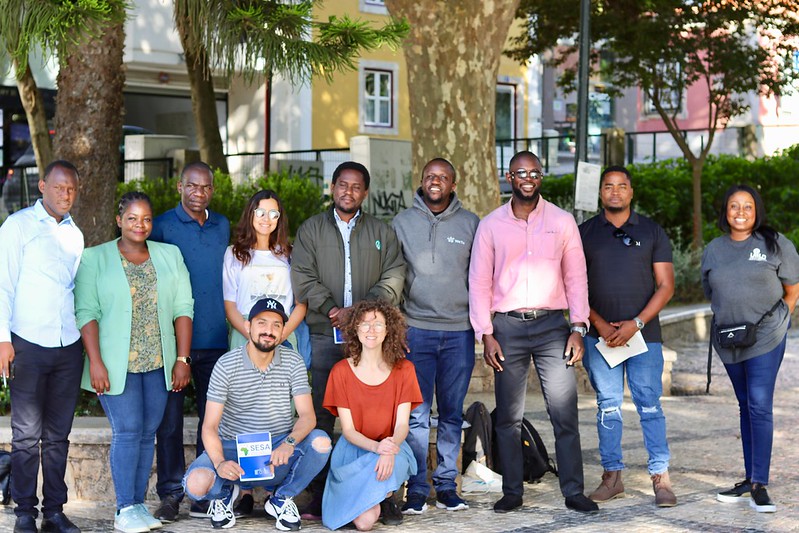
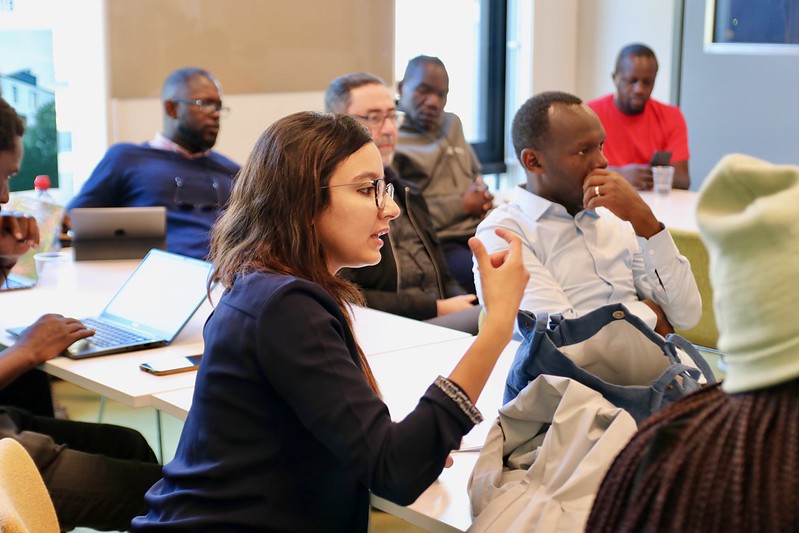
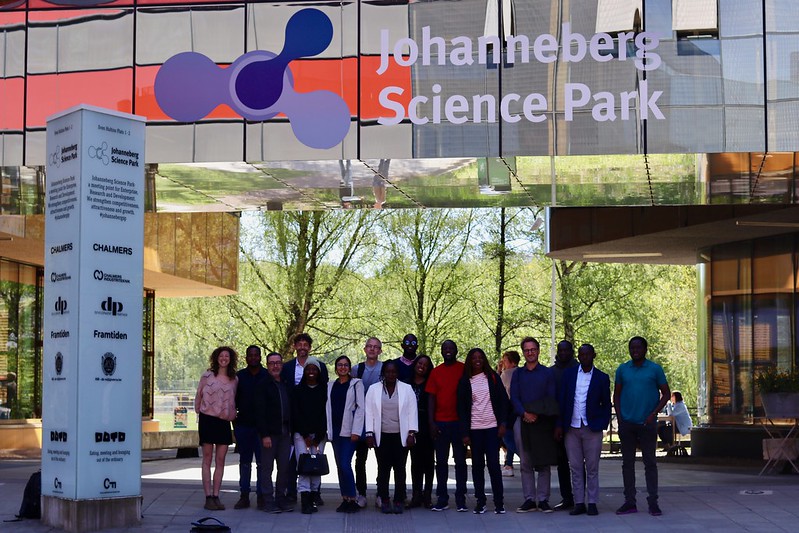
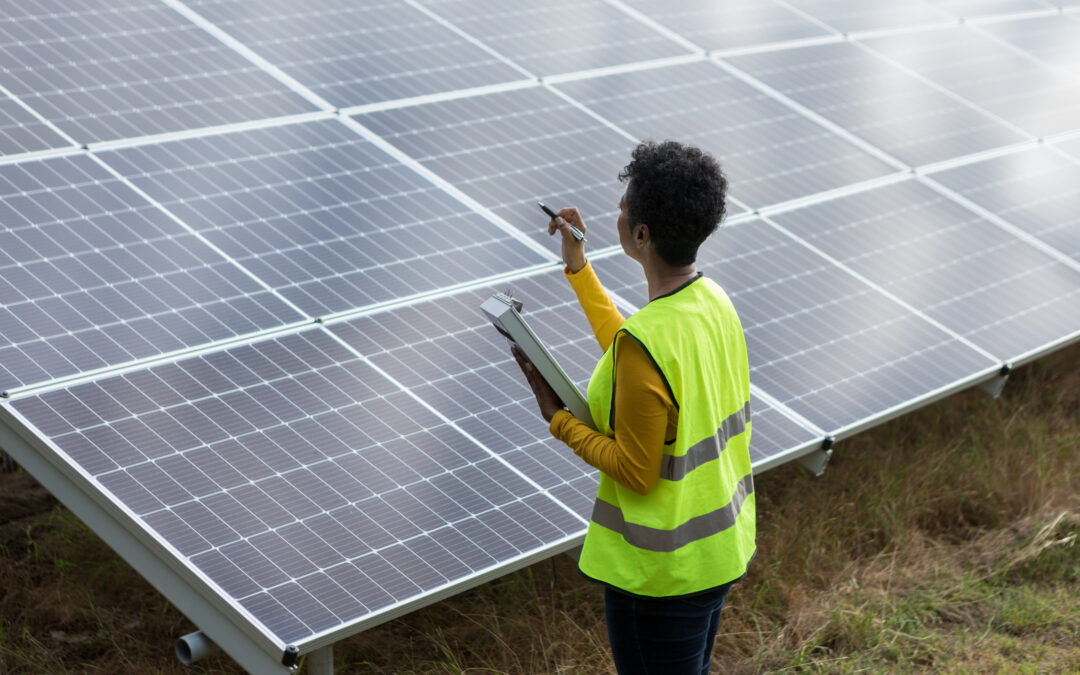

Recent Comments